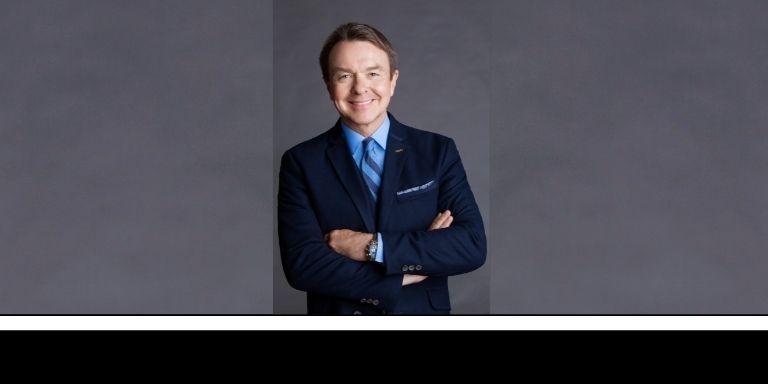Michael Clinton is the former president and publishing director of Hearst Magazines and is currently special media advisor to the Hearst Corporation’s CEO. He is also an author and photographer, who believes that everyone should strive to live their fullest life possible—especially in the second half of life. Michael has travelled through 124 countries, has run marathons on 7 continents, is a private pilot, a part owner of a vineyard in Argentina, has started a nonprofit foundation, holds two master’s degrees, and still has a long list of life experiences that he plans to tackle. He resides in New York and Santa Fe, New Mexico.
His book ROAR Into the Second Half of Your Life (Before It’s Too Late), published by Atria Books / Beyond Words Publishing, is available now.
Tell us a little bit about your background and how you ended up writing a book?
I had just wrapped up a 40-year career in the magazine publishing business, most recently as President and Publishing Director of Hearst Magazines. I had the great honor of working on the launch of O, the Oprah Magazine, as well as Food Network and HGTV magazines.
We publish over 25 brands including Esquire, ELLE, and House Beautiful. When I was thinking about life after my career, so much of what was written was about winding down and I wanted to wind up into something else. This led me to writing ROAR Into the Second Half of Your Life (Before It’s Too Late).
What do you hope your readers take away from this book?
If you are 50 and healthy, you have a good chance of living to 90. You can have a second career, new lifestyle, or new relationship! This is not your parents’ retirement construct. The “reimagineers” among us are writing the new script on a 50+ life.
What are the top three tools you are currently using to write, publish, and promote your books?
Creating digital assets to use on social media platforms has been crucial. LinkedIn and Facebook are my two most important outlets. However, mainstream media in broadcast, print, digital, and podcasts are also critical in promoting the book.
When will you consider your book a success?
When people tell me that it had an impact on their life, creating action to make change or move forward in a new direction, then I will know that I am successful in my message.
What have been your biggest challenges, and how did you overcome them?
I come from a poor, working-class background where there was no education in our family history and no real examples of creating meaningful success. At an early age, I learned that education would be my ticket out of my circumstances. As the first in my family to graduate from college, it set me on a course that allowed me to find my own success.
What is the one thing you wish you knew before publishing your book?
The concept of ROAR was developed before the pandemic hit and that universal experience created a rethink for everyone. Individuals took on an intense focus on their future. Hearing some of their stories and how they made decisions to change would have added more richness to the storytelling in ROAR.
If you had the chance to start your career over again, what would you do differently?
I went to New York City as a 22-year-old to find a path into the magazine publishing business. I’m one of the lucky ones in that I lived a career that I set out to live. It was a combination of talent, luck, and timing that allowed me to get to the top of my industry.
What’s a productivity tip you swear by?
Editing. Take out the extraneous things in your life that have no meaning or relevance to building a satisfying life and getting things done. It’s amazing how much time we can all waste on things that have no value to productivity.
Can you recommend one book, one podcast, and one online course for entrepreneurs and authors?
My favorite book in this space is The Artist’s Way by Julia Cameron. It teaches how to express your creativity in a unique way.
What are you learning now? Why is that important?
I’m a lifelong learner and just finished a master’s degree in non-profit management (philanthropy). I’m passionate about the sector and wanted to learn more for my work on non-profit boards and my own giving back.
What’s your best piece of advice for aspiring and new authors?
Stop talking about it and set the discipline in place to start writing. Block out the hours on your schedule each week and make those your writing appointments. Try and create the same block of time for each week.
What is your favorite quote?
“Get busy living or get busy dying,”
– The Shawshank Redemption.
What is your definition of success?
Knowing that I have had an impact on someone’s life in a positive way
How do you personally overcome fear?
The only way out of fear is to go into fear to overcome it.
How can readers get in touch with you?
I prefer LinkedIn connections. Feel free to connect with me at Michael Clinton.
Author Interview: Lisa Apolinski Helps Businesses With Digital Stories








